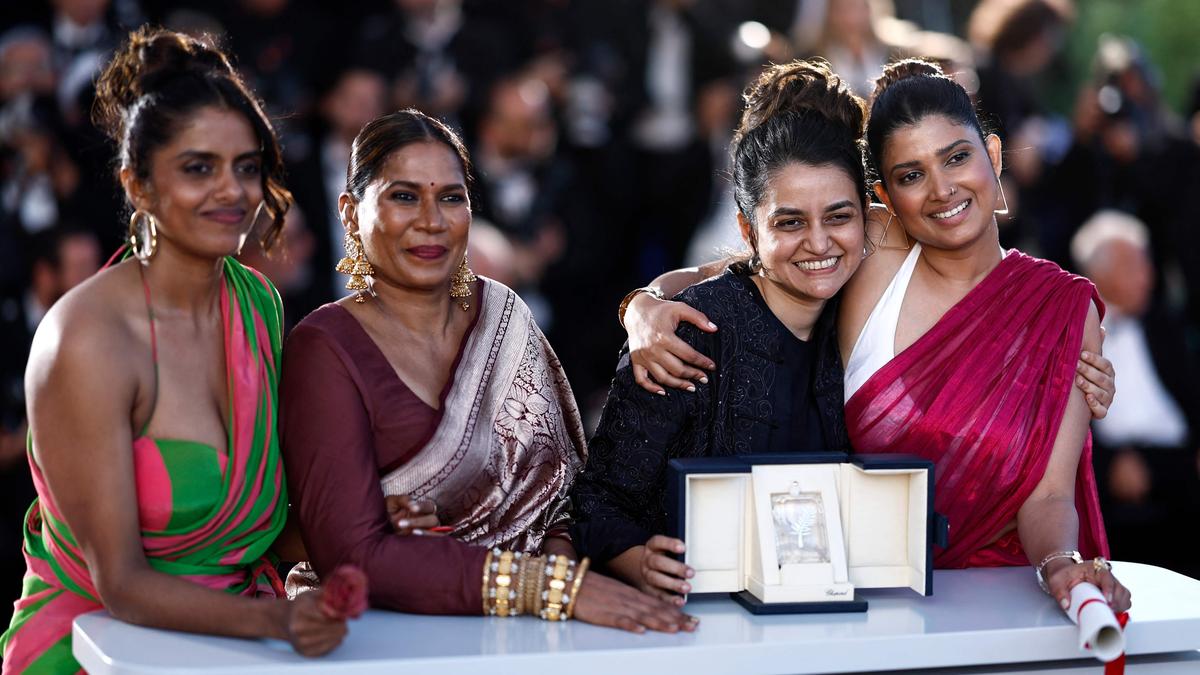
Oscars 2025 | Payal Kapadia’s seat at the big table
The Hindu
A lack of budget certainly didn’t stop filmmaker Payal Kapadia. Her big win at Cannes, along with rave reviews, special screenings and strong distributors with festival know-how have given her an edge
In the spring of 2022, S.S. Rajamouli’s historical action drama RRR was a huge hit in India and in the global Indian diaspora market when two American distributors floated the idea of releasing it once again — to reach an audience not usually drawn to Indian films.
With great word of mouth and reviews, the film pulled more American audiences. It was quite unlike anything Americans had seen. RRR ended up winning a few critics’ association awards and a Golden Globe for the song ‘Nattu Nattu’. One day before the final Oscars voting began, the distributors, Variance Films and Potentate Films, organised a sold-out screening in the 1,647-seat Ace Hotel Theatre in Los Angeles. A couple of weeks later, ‘Nattu Nattu’ won an Oscar for Best Achievement in Music Written for Motion Pictures.
Indian films rarely make such an impact in the U.S. during the awards seasons. I have been observing this for over four decades, first as a journalism student, then an entertainment writer and the festival director of the oldest Indian film festival in North America. Unless it is a work of the magnitude of Richard Attenborough’s Gandhi — a British-Indian co-production that won eight Oscars in 1983, beating Steven Spielberg’s most loved film E.T., the Extra-Terrestrial. Danny Boyle’s Slumdog Millionaire also won eight Oscars, but unlike Gandhi it was a British production with no Indian producer attached to it.
Marketing, promotion, and celebrity endorsements are often a big part of the awards campaign. In the fall of 2001, British filmmaker Roland Joffé (The Killing Fields) called a few of his friends in Hollywood — all members of the Academy of Motion Picture Arts and Sciences. Joffé had seen Ashutosh Gowarikar’s Lagaan, which was India’s entry for the Best Foreign Language Film. He had liked the film — about a farmer during the British Raj who challenges its officers to a game of cricket to get tax exemption — and wanted to make sure his friends would attend the Academy’s screening.
But in all these years I had not seen an Indian film reach American shores with a stamp of having won an award at a major film festival — not until May 2024, when Payal Kapadia’s second feature All We Imagine as Light won the Grand Prix at the 77th Cannes Film Festival. It was the first Indian film in 30 years to play in the main competition section of the festival.
Suddenly, it seemed everyone was talking about All We Imagine as Light, a Malayalam language drama on three working women and the transformative power of friendship and sisterhood. IndieWire gave it an A rating; they are usually very conservative in their reviews. And senior critic Peter Bradshaw of The Guardian gave the film a five-star rating, comparing it to Satyajit Ray’s Mahanagar and Aranyer Din Ratri.
This followed screenings at the top three fall season festivals in North America: Telluride, Toronto and New York. There were more awards, including from several American critics’ associations. And even though India did not submit All We Imagine as Light for the Academy Award for Best International Feature Film, the buzz about it remained strong.

Thomas Jefferson and Abraham Lincoln are two of the greatest presidents that the U.S. has seen. You probably know that already. But did you know that Jefferson made what is considered the first contribution to American vertebrate paleontology? Or that Lincoln is the only U.S. president to receive a patent? What’s more, both their contributions have March 10 in common… 52 years apart. A.S.Ganesh hands you the details…












